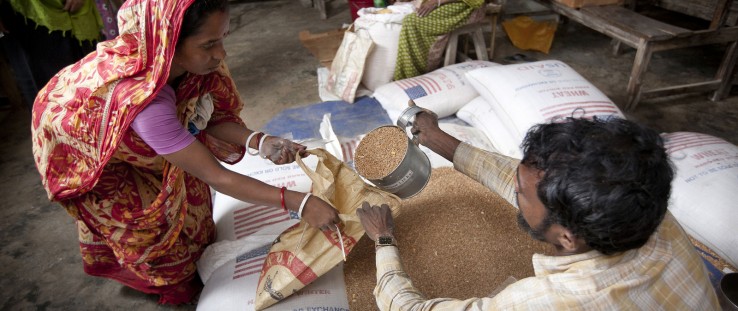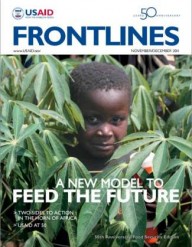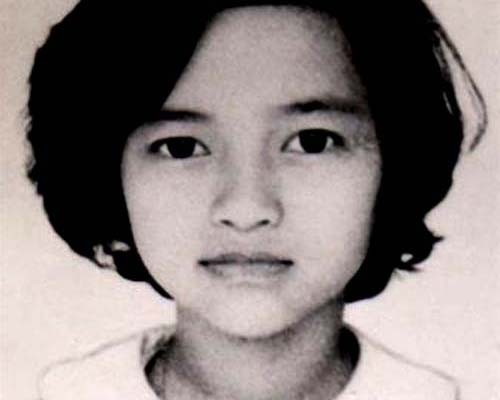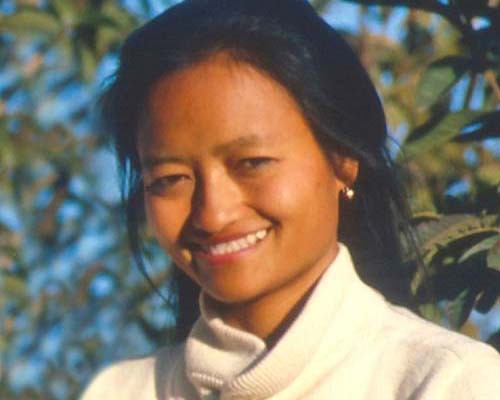

I was born in Mizoram?which translates to “land of the Mizo people”?a remote, mountainous part of northeastern India with its own language and culture. During my early childhood in the 1950s, we were a marginalized tribal group with most families making a living by farming. We lived in simple one-room wooden houses built on stilts along the hill slopes, with no running water or electricity, and our everyday life centered on working on our family rice farm.
My mother, older sister, and I had the additional burden of fetching water from mountain springs, washing the family’s clothes in rivers, gathering firewood, and cooking. Since there was no public transportation, we walked everywhere. When I was able to make the four-mile trek, I sometimes joined my older siblings in attending a small missionary school. With no television or radio, our universe revolved around our close-knit community, with occasional stories from those adventurous enough to walk across the border into Burma (now known as Myanmar).
After my father died when I was 5 years old, my mother struggled to take care of the farm and the small home bakery that my father had started. Although illiterate, she intuitively knew that for her children to do better in life, we would have to be placed in an English-speaking boarding school in Calcutta.
In those days, widows automatically lost their social standing in the community, with their role relegated to the upbringing of children and menial duties assigned by in-laws. Traveling outside the community or having an independent life was frowned upon by the elders, and my mother’s decision led to her being ostracized. Today, over 40 years later, her vision has become widely accepted.
I ended up in a small school that served the poor with U.S. food aid and a sponsorship program. The Welland Gouldsmith School, connected to the Old Mission Church, was a charitable institution founded in 1870 to impart European-style education.
My mother paid a small monthly fee to enroll my older sister and myself as boarders. She died just a year later. My older brother, who stepped in to take care of us at age 16, also died within a year.
A New York family participating in the Christian Children’s Fund sponsorship program took an interest in me, as, like them, I loved to learn. Besides excelling in my studies, I learned to play the piano and violin, and also tried the sitar. My early years of trekking up and down the hills of Mizoram prepared me for track, basketball, and other sports. My life, while marked by deep sadness, was full.
My final years in school saw me fully immersed in preparing for the Senior Cambridge examination (later known as the Indian School Certificate), a requirement for entering college. I finished in the first division. My sponsors?who are now my parents?offered to bring me to the United States for further studies and to become part of their family.
Strangers in an Airport
I arrived on June 4, 1971. That same day and time, my future husband Joe Connors was at the same airport departing for his Peace Corps assignment, and noticed me. His search for me ended almost eight years later on July 17, 1979, when he amazingly saw me again in the revolving door of Bloomingdales in New York City. We became instant friends over a cup of tea. Over the following 32 years, he witnessed and supported my work in Asia, Africa, and now at USAID/Washington.
My USAID work brings me full circle to my humble beginnings, and not a single day passes without me thinking how fortunate I am.
Without U.S. food aid, the Welland Gouldsmith School could not have fed me and other disadvantaged children, most of us without parents or a stable home. We received bulgur wheat and milk for our breakfast porridge, milk and bread for our mid-morning snack, and rice and dhal (lentil soup) for lunch and dinner. For me, nourishment led to scholastic achievements, which led to opportunities and a career in international development, and, purely by coincidence, a job with USAID’s Office of Food for Peace, helping to establish its results-management framework. Partnering with NGO implementers, we were able to provide tangible, aggregated evidence, for the first time in history, that our emergency food aid provided significant benefits to people in need.
The Bureau for Policy and Program Coordination recruited me to develop Agency-wide goals and performance measurements in humanitarian assistance to meet the requirements of the Government Performance Results Act.
Realizing that USAID alone could not meet increasing global humanitarian needs nor report on progress without mobilizing other humanitarian actors, the work evolved into the global Standardized Monitoring and Assessment of Relief and Transitions (SMART) initiative that brought together the world’s experts in emergency nutrition and food security.
My life experiences prepared me well for hardships, and, in particular, for being comfortable taking risks to pioneer new concepts and develop new partnerships. A lesson I have taken from my mother is that one courageous person can make a huge difference to change a community, an entire way of life, and the future.
As I embraced my new life in United States, I made a conscious decision to maintain a balance of ideology from my origins, including kindness and self-sacrifice in the service of others?a traditional core value of the Mizos. I am fortunate to be in a line of work that connects to my traditional moral principles and inspires me to help move USAID forward to transform more lives.











Comment
Make a general inquiry or suggest an improvement.